Iran Rejects US Navy Report On Harassing Commercial Vessel

A day after the US Navy reported that Iranian military speed boats were "harassing" a commercial vessel in the Strait of Hormuz, the IRGC claimed to have assisted the vessel.

A day after the US Navy reported that Iranian military speed boats were "harassing" a commercial vessel in the Strait of Hormuz, the IRGC claimed to have assisted the vessel.
Admiral Abbas Gholamshahi, an IRGC commander, claimed Monday that the boats were civilian and when the Command-and-Control Unit of the Strait of Hormuz learned about a distress call from a merchant ship with the flag of the Marshall Islands they tried to ease the worries of its captain.
US and UK navies acted when a merchant ship was being harassed by Iranian forces in the Strait of Hormuz, the US Navy said Monday.
The vessel sent a distress call on June 4 while transiting the straits, a relatively narrow waterway controlled in the north by Iran but considered international waters for commercial and naval traffic.
Iran has hundreds of fast attack boats that for years not only have harassed civilian vessels but, on many occasions, have come dangerously close to US and other warships in a show of force.
"The issue of providing security and aid to the vessels traveling in the Strait of Hormuz and the Persian Gulf is not something new, and it will definitely continue," added Gholamshahi, who appeared to be trying to back peddle the crisis.
US Navy guided-missile destroyer USS McFaul and UK Royal Navy frigate HMS Lancaster both received the distress call, and Lancaster launched a helicopter to provide surveillance. The US 5th Fleet also directed a P-8A Poseidon maritime patrol aircraft to monitor the scene, the Navy said.
However, the Iranian admiral called this narrative "absolutely false" saying that "when the commercial ship requested help, no extra-regional vessel was present" and basically the purpose of this narrative is "to justify the presence of extra-regional countries in the Persian Gulf".
As talks seem to be progressing with the US on Iran’s nuclear program, it would be extremely harmful to relations for the latest crisis to stand in the way.

The US State Department responding to reporters on Monday did not deny that its special envoy for Iran had secret meetings with Tehran’s ambassador to the UN.
The Financial Times last week reported that the special envoy Robert Malley met with Iran’s UN ambassador in New York several times to negotiate over American citizens held hostage by Iran.
A reporter asked State Department deputy spokesperson Vedant Patel during his regular briefing on Monday to confirm the report.
“I don’t have anything to announce on this front,” Patel responded.
He added, “As you’ve heard me say previously, we have the means to communicate with Iran and deliver messages to them that are in America’s interest to do so. We’re not going to detail the contents of those messages or the means of those deliveries. I don’t have anything additional to add there.” He refused to comment further.
There were many unconfirmed reports in May that Tehran and Washington were engaged in talks over releasing American hostages in exchange for some of Iran’s frozen funds abroad.
Iran International in January had reported the secret meetings and the State Department at the time did not deny or confirm the report using the same language Patel used on Monday.
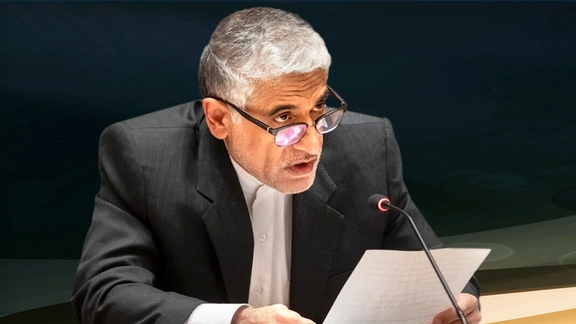
Former spokesperson Ned Price in response to a question by Iran International said on January 18, “We have the means to deliver specific and firm messages to Iran when it is in America’s interest to do so.”
Iran International had asked the DoS that according to information it obtained, US Malley had met with Iran’s UN ambassador, Saeed Iravani, “at least three times in the last two months.”
“But we're not going to get into details about how we deliver these messages, except to say that we do so in close coordination with allies and partners.”
Regarding the content of these messages, Ned Price had said, “We have consistently conveyed three messages: stop killing peaceful protesters, stop selling weapons to Russia to kill Ukrainians, and release the Americans you’ve wrongfully detained. We also use any available opportunity to make clear that we will take necessary steps to protect American citizens.”
On the issue of American dual-nationals held hostage in Iran, no breakthroughs took place even if Malley met and negotiated with Iravani in the end of 2022 or even later. Three individuals, Siamak Namazi, Emad Sharghi and Morad Tahbaz have spent years in Iranian prisons charged with bogus accusations, without due process of law.
If Malley did meet Iravani face-to-face, it would be the first reported direct meeting between US and Iranian diplomats since the Biden administration assumed office and offered talks to revive the 2015 JCPOA nuclear deal. Iran has consistently refused direct talks with the United States, as a direct order by Supreme Leader Ali Khamenei.
During 11 months of nuclear negotiations in Vienna from April 2021 to March 2022, the United States was engaged on the side-lines. Messages were being carried by European Union representatives, as well as by Russian diplomats between the US and Iranian delegations.
In recent weeks, several politicians and pundits in Iran, allowed to speak in the local media, have urged direct talks with Washington to resolve the nuclear and other disagreements and relieve the pressure of US sanctions but so far Khamenei has not relented.
In an address to the pro-Israel advocacy group AIPAC on Monday, Secretary of State Antony Blinken said, "If Iran rejects the path of diplomacy, then, as President Joe Biden has repeatedly made clear, all options are on the table to ensure that Iran does not obtain a nuclear weapon."
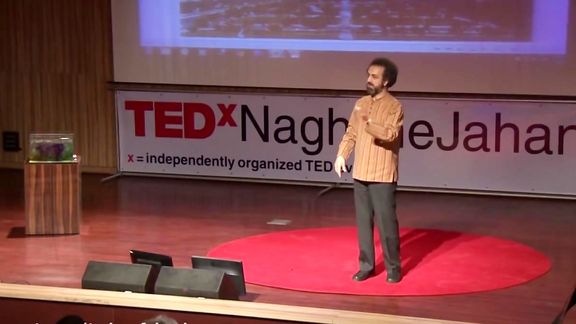
Iranian academic Mohsen Renani says, "Iran's government is unable to reform itself" to adapt to the needs of a modern society, and it is too weak to stop change".
Renani is a well-respected professor of economics in the University of Esfahan (Isfahan).
A May 26 post on Renani's Telegram account has become so popular among the academia and the public that 14 other Iranian academics wrote their opinions under his post, to add value or offer their insight on the matter. More than 66,000 Iranians follow Renani's articles on Telegram.
Referring to the current situation of the Iranian society, following the 2022 uprising, Renani wrote: "Let us remember that Iran today needs thoughts more than blood. It needs water more than military power, It needs ethics more than ideology, rationality and understanding of simple facts more than intelligence. It needs life more than death, joy more than sorrow, understanding more than slogans, and sympathy more than hatred."
These emotional words uttered by Renani should be understood in the context of government forces killing more than 500 protesters in the street and jailing thousands who had no legal defense and many subjected to torture.
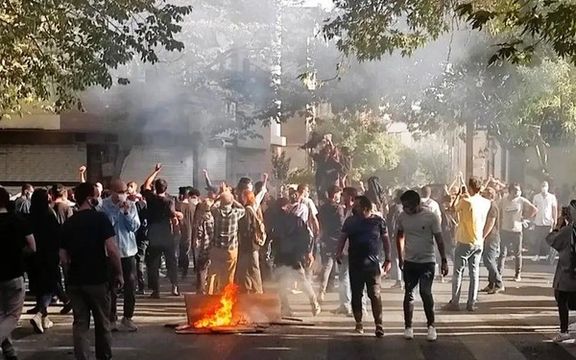
Renani added: "Societies will evolve and dictators will have to leave the scene sooner or later, with or without bloodshed. But if violence and hatred are produced in the process of their departure, that violence and hatred will haunt us and the next generation in the same way we are paying the price of the movement that led to the nationalization of Iran's oil and the coup in 1953."
Calling for a change in Iranian intellectuals' approach to political activism, Renani said elsewhere in the post: "The intellectuals' mission today is not producing thoughts and ideas. Their mission is to keep the society joyful and the youths lively. Young people are the country's main capital. If they live happily, then we do not have anything to worry about, as they will rebuild the country."
He added: "The government is suffering from the illnesses of old age. It is too weak to rebuild itself and too weak to stop changes the young generation wants. The fact that the government is beginning to act like characters in cartoons is good news. We only need to take care of young people and keep them away from anger and hatred. We only need to stop them losing their hope and fleeing Iran."
In another part of the post, Renani wrote: "The government can no longer manage the country by suggesting economic plans. Whatever the government does in the area of economy will make the situation worse. On the other hand, the Mahsa revolution has turned into the most profound revolutionary movement in Iran's modern history."
He said, "I hope men will not interfere in this movement and will not make the women's cultural revolution violent. …They should not try to replace women or lead them. Iranian men have staged three revolutions in contemporary Iran and messed up everything on all three occasions. The government is in a deadlock, and it will lose, no matter what it does. Only the most foolish government would entangle itself in such a situation. What we need to do now is…to be kind and happy, read books, play music, support working children, give jobs to unemployed youths, give loans to the needy, … respect each other, be ethical, and have mercy on everyone everywhere until this tough time passes."
Alireza Kafaei, one of Renani's critics wrote: "How can we be that patient in the face of all of these crimes, imprisonments and executions and all of these thefts by state officials in the name of religion? They are wasting the country's resources and rob the youths of their hope. How can we dance to that?"
An unidentified critic said: "Renani is suggesting that women who turn to prostitution as a result of poverty, a man who sells his kidney to make ends meet and the Baluch child who do not have shoes to wear, and those who have been blinded by security forces during the protests should dance instead!"
Academic Sajjad Fattahi wrote: "Renani is like a doctor who instead of giving the right medicine to the patient gives him a bunch of poetic words. What he explains and suggests are not accurate enough and that might make the patient's situation even worse."
Alireza Gharibdoost praised Renani for encouraging others to debate the matter. He wrote, "As Renani himself has said elsewhere, progress is not a product of dialogue. Progress is dialogue and that is what Renani is advocating."
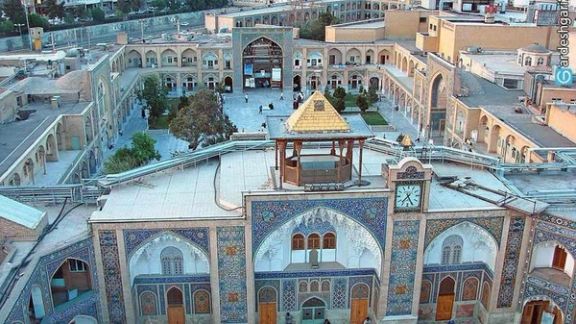
A report, claimed by an opposition group to have been hacked from the Iranian presidency servers, shows that the budget for seminaries increased by 96% last year.
“The money has been spent on issues like pensions for elderly clerics and support for the retirement of seminary students," the report released by MEK-affiliated Telegram account Uprising till Overthrow said.
Iranian media had reported in January that the budget for religious organizations would increase by 130 percent, reaching $500 million, while at least 20 million more Iranians are now considered poor compared to two years ago.
Religious organizations, including seminaries, play the role of propagandists for the regime.
The group released a trove of secret and top-secret documents on May 30 that it said were obtained by hacking the government’s servers.
Since the 1979 revolution, the clergy have gained increasing power, but discontent against them has risen in recent years, particularly amid waves of protests over economic, political, and civil rights issues.
Several Iranian clerics have come under attack by angry Iranians recently as rising prices and constant protests have led to a tense environment in the country.
In recent months, while the government was keen to enforce compulsory hijab as women defied the imposed lifestyle and took to the streets, many clerics, particularly those in the government, used vulgar words about Iranian women.
Iran's top Sunni cleric Mowlavi Abdolhamid said Friday that clerics and religious seminaries must not be funded by the government to remain independent and critical.

US Secretary of State Antony Blinken has reiterated that “all options are on the table” to prevent the Islamic Republic from acquiring a nuclear weapon.
In his address to the pro-Israel advocacy group AIPAC on Monday, he said, "If Iran rejects the path of diplomacy, then, as President Joe Biden has repeatedly made clear, all options are on the table to ensure that Iran does not obtain a nuclear weapon."
He did not elaborate on what Iran should do exactly that can be construed as rejecting the path of diplomacy as Tehran has been enriching uranium to over 60% purity and its proxy militia have attacked US forces in the region at least 83 times since 2021.
Admitting that there was no danger that Israel faces "that is graver than the one posed by the Iranian regime,” Blinken voiced Washington's "iron-clad" commitment to Israel's security.
“That regime routinely threatens to wipe Israel off the map, continues to provide weapons to terrorists and proxies like Hezbollah and Hamas, who reject Israel's right to exist,” he said, adding that the Islamic Republic “exports its aggression throughout and even beyond the region, including by arming Russian forces with drones that are being used to kill Ukrainian civilians and destroy its infrastructure.”
Blinken also highlighted the US “three-pronged approach of diplomacy, economic pressure, and deterrence, which also includes strengthening Israel's military capabilities,” saying that “it puts us in the strongest possible position to address the Iranian nuclear threat just as we take on the many other challenges posed by the Iranian regime.”
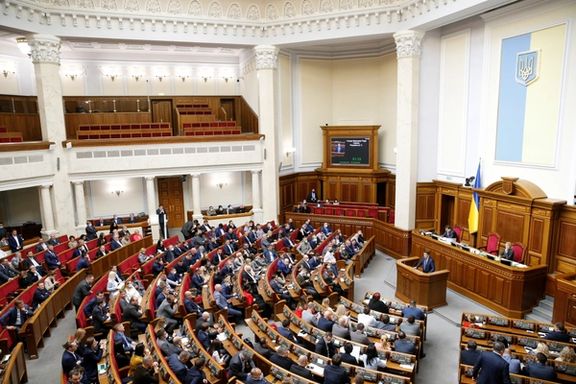
Ukrainian lawmakers presented a bill on Monday calling on Kyiv to designate Iran’s Revolutionary Guards as a terrorist organization.
The bill is sponsored by dozens of Ukrainian parliamentarians, including the head of the Verkhovna Rada’s foreign affairs committee, Oleksandr Merezhko.
Israel and the US have been urging their allies to list the IRGC as a terrorist group. In mid-May, a bipartisan group of US congresspeople urged Washington’s allies– namely the UK, Australia, Canada, and India -- to swiftly act and officially join Washington in labeling the IRGC in its entirety.
The move in Ukraine has been lauded by several Israeli officials, such as the country’s ambassador to Ukraine, Michael Brodsky, who said, “Iran poses a clear threat to Ukraine, Israel, and the whole world.”
Washington designated the IRGC as a foreign terrorist group in 2019 under the Trump administration as relations with Iran plummeted following Washington’s withdrawal from the 2015 nuclear deal. Tehran responded at the time by designating the US military as a terrorist group.
The Ukrainian action came only a few days after the Swedish parliament unanimously voted to designate the IRGC. It swiftly followed the execution of Swedish-Iranian Habib Chaab (Asyud) which saw Sweden's Ministry of Foreign Affairs summon Iran's chargé d'affaires in protest of the execution, one of hundreds since the start of the year.
Earlier on Monday, the UK Defense Ministry said in an intelligence update that during May 2023, Russia launched over 300 Iranian Shahed suicide drones against Ukraine, describing it as“its most intense use of this weapon system to date.”